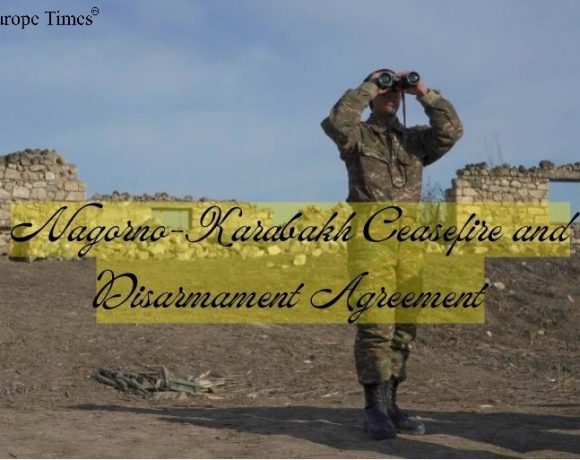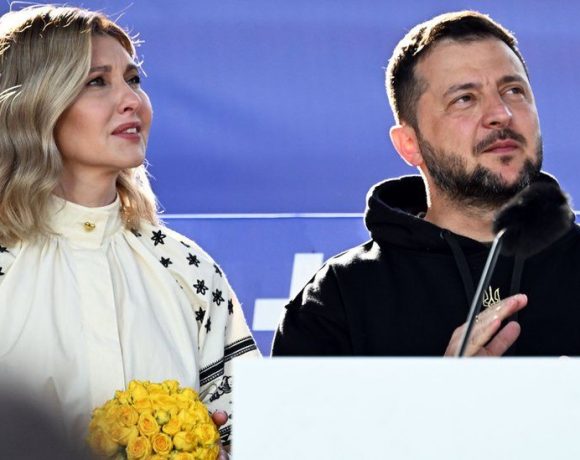
A day after Azerbaijan initiated an offensive in Nagorno-Karabakh, ethnic-Armenian forces have agreed to a ceasefire brokered by Russia. This agreement includes the significant concession of complete disarmament by Karabakh forces. Nagorno-Karabakh, home to around 120,000 ethnic Armenians, is internationally recognized as part of Azerbaijan.
Three years ago, Azerbaijan reclaimed areas in and around Karabakh and, on Tuesday, demanded an unconditional surrender. Karabakh authorities have reported at least 32 casualties, including seven civilians, and approximately 200 injuries since Azerbaijan launched what it termed “anti-terror” operations.
Azerbaijan’s leadership has announced plans to meet with Armenian representatives from Karabakh to discuss “re-integration” matters in the Azerbaijani town of Yevlakh, located about 100 kilometers (60 miles) north of Karabakh’s regional capital, known as Khankendi to Azerbaijanis and Stepanakert to Armenians.
Mediated by Russian peacekeepers, enclave leaders have confirmed a comprehensive cessation of hostilities beginning at 13:00 local time (09:00 GMT). However, despite the ceasefire, loud explosions persisted in the regional capital, and minor clashes were reported by both sides. Azerbaijan claimed to have captured over 90 positions from ethnic Armenians since the conflict began.
Karabakh officials urged residents to remain in shelters and avoid heading to the local airport, which adjoins a Russian peacekeeping base. Nonetheless, a group of civilians gathered near the airport.
Russia revealed that its peacekeepers had evacuated 2,000 people from Karabakh villages since the offensive commenced. Armenian Prime Minister Nikol Pashinyan emphasized that his government played no part in crafting the ceasefire text and insisted that Russian peacekeepers bore full responsibility for the safety of the local population. On Tuesday, he accused Azerbaijan of carrying out “ethnic cleansing” in Karabakh.
The terms of the truce require complete disarmament and disbandment of local Karabakh forces, along with a commitment for Armenian forces to withdraw, despite Yerevan’s denial of any military presence there.
Azerbaijan’s presidential envoy, Elchin Amirbekov, stated that Russian peacekeepers played a crucial role in facilitating the ceasefire’s implementation.
Picture Courtesy: Google/images are subject to copyright

